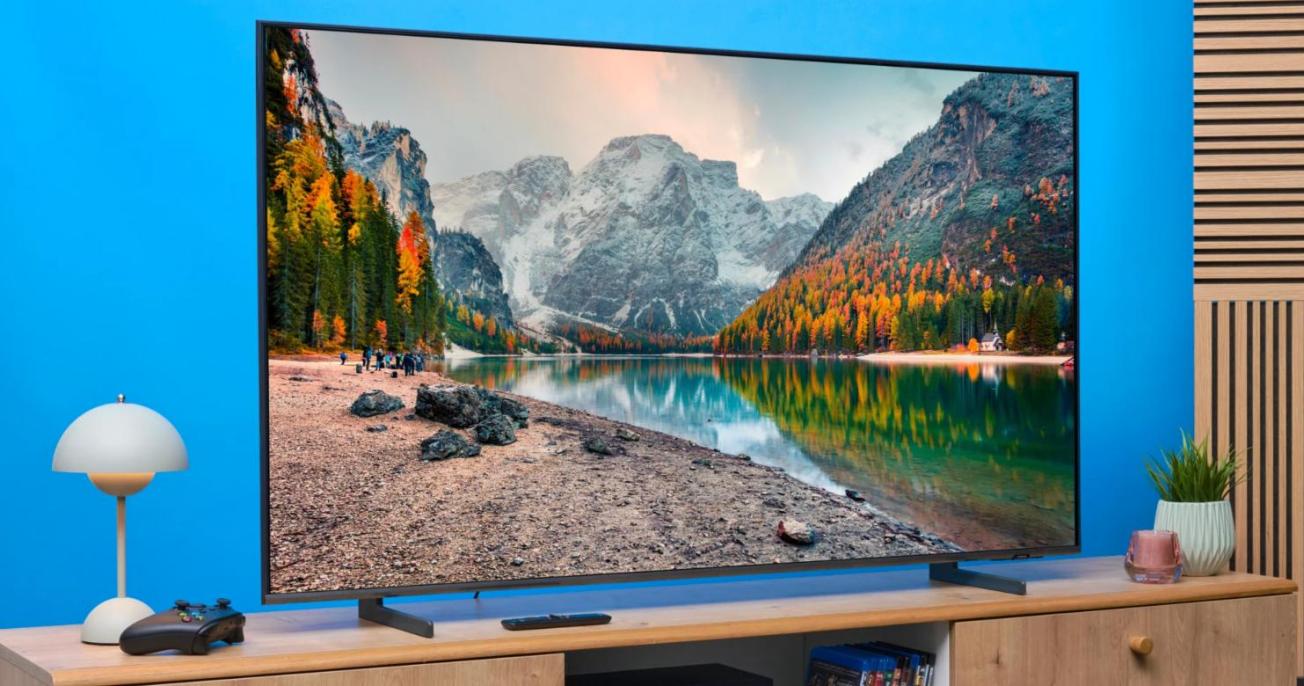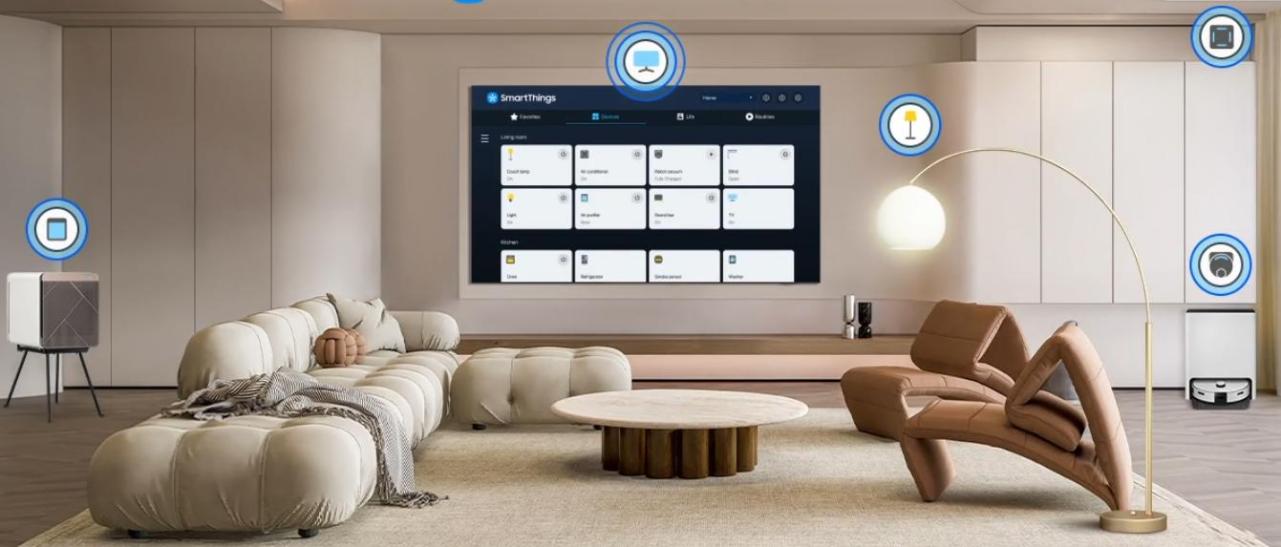Samsung smart TVs offer an impressive array of features that set them apart from traditional TVs. Unlike regular TVs that primarily serve as an output for cable or satellite signals, smart TVs tap into more possibilities. They provide users with connectivity, convenience, and control over entertainment content. Samsung smart TVs connect to the internet, providing access to a multitude of streaming services and apps directly from the TV screen. Their advanced technology enhances the viewing experience by allowing integration with other smart home devices and regular software updates, keeping the system secure and up to date. Discover how these smart features transform your TV-watching experience as we compare them to regular TVs.

How Do Smart TVs Work Compared to Regular TVs?
Regular TVs generally require external devices for receiving and displaying video content. They function primarily through inputs like cable boxes, DVDs, or streaming devices. In contrast, Samsung smart TVs have built-in operating systems, allowing them to function much like a computer. When you switch on a smart TV, it connects to your home Wi-Fi network, enabling direct access to online platforms without additional hardware.
Moreover, Samsung TV comes with user-friendly interfaces that offer easy navigation through apps, services, and media. This connectivity enables real-time streaming of shows, movies, and music straight from the web, providing endless entertainment options. Meanwhile, regular TVs depend heavily on smartphone pairing or external gadgets to access such features, making them less convenient for seamless use.
What Features Set TV Smart Models Apart?
Smart TVs boast features designed to enhance user interaction and expand content access. They differ from regular TVs by offering internet connectivity, integration with smart home devices, screen mirroring capabilities, and timely software updates. These features contribute to creating a more interactive and engaging viewing experience.
Internet Connectivity and Streaming Services
Samsung smart TVs transform content viewing with internet connectivity, accessing platforms like Netflix, YouTube, and Amazon Prime straight from your TV. No more switching between devices – every option is at your fingertips. This convenience makes Samsung smart TVs adept at facilitating on-demand entertainment, something regular TVs can only offer through external streaming devices. Samsung’s interface makes exploring content easy and intuitive, tailoring recommendations based on your viewing habits. In contrast, regular TVs can’t evolve to keep up with your growing streaming needs, limiting you to traditional broadcast content. As the streaming landscape expands, smart TVs provide a more versatile and future-ready entertainment solution.
Integration with Smart Home Devices
In a smart home ecosystem, Samsung smart TVs act as a control hub, interacting seamlessly with various devices. Through platforms like SmartThings, you can sync your TV with lights, smart speakers, and security systems, creating an interconnected user experience. With voice commands, you can dim lights or adjust your thermostat while watching your favorite show, tasks that regular TVs can’t accomplish without additional smart devices or intricate setups. Samsung’s smart feature integrations simplify daily routines, turning your TV into more than just a screen—it becomes your smart home’s brain. This capability provides convenience and utility unmatched by basic TV setups.

Screen Mirroring and Multi-Device Connectivity
Screen mirroring on Samsung smart TVs allows users to project content directly from smartphones or tablets, enhancing multi-device interaction. You can easily share photos, stream videos, or even play mobile games on the large screen. This functionality creates a versatile setup for entertainment, presentations, or family gatherings. Samsung’s multi-device connectivity also means pairing Bluetooth headphones, keyboards, or game controllers, enhancing interactivity further. Regular TVs lack this innate flexibility, often needing multiple cable connections and complex setups to achieve similar outcomes. By supporting various devices, Samsung smart TVs ensure a dynamic and adaptable viewing environment.
Software Updates and Enhanced Security
One of the standout features of Samsung smart TVs is their ability to receive over-the-air software updates, keeping them current with new technologies and trends. These updates not only enhance performance but also introduce new features and bug fixes that regular TVs miss out on. Moreover, Samsung prioritizes security, implementing regular patches to safeguard users’ data and privacy. This proactive approach ensures that smart TVs are not just up-to-date but also secure against potential cyber threats. Regular TVs, in contrast, offer no such assurances, making Samsung smart TVs an excellent choice for tech-savvy, security-conscious viewers.
Which One Should You Choose for Your Home?
Choosing between a smart and regular TV depends largely on your entertainment needs. If you prioritize seamless content access, internet connectivity, and integration with other smart devices, Samsung smart TVs offer significant advantages. Their capabilities extend beyond traditional viewing, providing modern experiences that adapt to your lifestyle.
Assessing Your Viewing Habits and Needs
Understanding your content consumption is key to making the right choice. If you mostly watch live TV and DVDs, a regular TV might suffice. However, for those who prefer a variety of streaming services or online gaming, Samsung smart TVs cater directly to these preferences. They seamlessly blend streaming and live broadcast, offering flexibility that regular TVs can’t match. Additionally, smart TV features like voice control and app diversity cater to viewers seeking streamlined access to dynamic content libraries. By assessing how you engage with media, you’ll better identify whether the built-in capabilities of a smart TV align with your daily habits.
Budget Considerations and Long-Term Value
While smart TVs may come with higher upfront costs compared to regular TVs, they offer long-term value through their feature-rich ecosystem. Consider investing in a Samsung smart TV as you navigate the growing demand for streaming platforms. Unlike regular TVs, which might require frequent add-ons or external devices for the latest content, smart TVs have everything built in. They also save costs on additional subscriptions for middleman devices. Over time, the convenience and advanced capabilities of smart TVs can outweigh initial expenses, providing better value and enhanced entertainment experiences for years to come.
Future-Proofing and Software Updates
Investing in Samsung smart TVs ensures your home entertainment system is future-proofed. With regular software updates, these TVs stay ahead in technology, adapting to new apps and security protocols. This adaptability keeps users at the forefront of home entertainment innovations. Without the limitations of fixed external players, smart TVs effortlessly embrace new streaming dynamics. This longevity means users bypass the inevitable obsolescence of regular TVs, which require constant upgrades through extra devices. Samsung smart TVs sustain their relevance, providing a continuously refreshing interface and capabilities that stay in step with technological advancements.
Conclusion
Samsung smart TVs redefine home entertainment by combining connectivity and advanced technology. With direct internet access, smart home integration, and frequent software updates, they surpass regular TVs, which require additional equipment for similar benefits. Understanding your viewing habits and budget constraints will guide your choice between these options. However, if future-proofing, convenience, and comprehensive content access appeal to you, Samsung smart TVs present an attractive choice. They align with the evolving tech landscape, ensuring that viewers embrace a world of endless possibilities from the comfort of their living rooms.
FAQ
Can I Use a Regular TV Like a Smart TV?
Regular TVs need external devices like Chromecast, Roku, or Amazon Fire TV Stick to mimic smart TV capabilities. These gadgets allow internet connectivity and access to streaming services through your regular TV. However, the process might require additional setup and space for multiple remote devices. While workaround solutions exist, the user experience varies significantly. Users may find limitations in the interface or compatibility issues with certain smart features. Ultimately, while it’s possible to transform a regular TV into a smart-like device, it may not be as seamless or integrated as owning a true smart TV.
Are Samsung TVs Compatible with All Smart Features?
Samsung smart TVs come equipped with a broad array of smart features. They support major streaming services and smart home device integration. While they offer extensive compatibility, some niche applications or older third-party devices may face restrictions. Checking device specifications and compatibility lists helps ensure seamless integration with your smart home ecosystem. In most cases, Samsung’s commitment to innovation leads its TVs to support emerging technologies, sustaining their user appeal. As long as you’re using industry-standard smart features, Samsung smart TVs are well-suited to integrate with your devices efficiently.
Do Smart TVs Need the Internet to Function?
Smart TVs require internet access to utilize their full range of features, like streaming online content and receiving software updates. But, they still function as regular TVs for watching over-the-air broadcasts via an antenna or through cable services without the internet. You can connect Blu-ray Players or game consoles as other sources. However, without the internet, their ‘smart’ functionalities—such as browsing applications or accessing on-demand content—remain inaccessible. To maximize their capabilities, a reliable Wi-Fi connection is recommended, turning your Samsung smart TV into a versatile entertainment hub.

